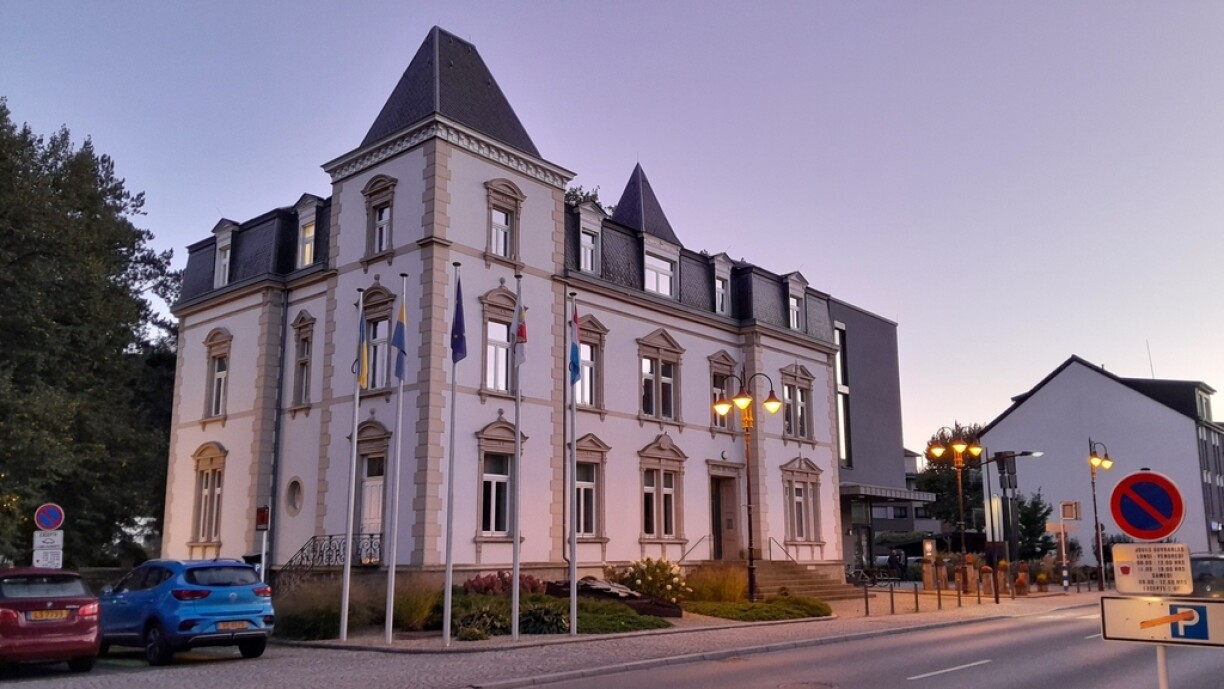
The Nordstad project – a long-planned merger of northern municipalities aimed at creating the country’s third urban hub – has become emblematic of the Grand Duchy’s tendency for protracted developments. First proposed over 50 years ago, the initiative has seen two of its original six municipalities withdraw, repeated funding disputes, and now faces a second referendum amid renewed uncertainty.
The Nordstad merger resurfaced in headlines in recent weeks after the Erpeldange-sur-Sûre municipal council failed to reach consensus on continuing negotiations. Following days of deliberation, the council announced on Wednesday that it would put the decision to a public vote by year’s end. The project’s future remains in limbo, yet one constant persists: a history of twists and turns spanning decades.
The term Nordstad (‘North City’) was first coined in 1973 by senior civil servant Adrien Ries, envisioning a northern counterpart to Luxembourg City and the southern hub of Esch-sur-Alzette. The proposed merger initially included Bettendorf, Colmar-Berg, Diekirch, Ettelbruck, Erpeldange, and Schieren. While the region has urbanised over time, political unification has lagged.
Momentum for the merger briefly revived in 2018, only to stall when Colmar-Berg withdrew. Former mayor Christian Miny cited the commune’s alignment with the Centre electoral constituency – unlike the other Nordstad municipalities, which belong to the North – as a key sticking point. Local officials also argued that Colmar-Berg, with its robust infrastructure, was not yet ready for integration.
Following Colmar-Berg’s withdrawal, the remaining Nordstad municipalities began exploratory talks in mid-2019. United in their demand, they sought a state subsidy of €5,000 per inhabitant, totalling nearly €120 million at the time. However, then–Minister for Home Affairs Taina Bofferding firmly rejected the request in 2021, calling the sum “extremely high” and beyond the state’s current financial capacity.
While acknowledging progress toward merger plans, she emphasised the government could not yet make “big promises”.
In a 2024 compromise, the state designated Diekirch, Ettelbruck, and Erpeldange as national development and attraction centres from 2025, granting them a 25% per-capita funding boost. Bettendorf and Schieren, however, would only qualify post-merger – scheduled for 2029.
Bettendorf’s council protested the delay, demanding immediate inclusion. When Home Affairs Minister Léon Gloden refused, the municipality exited negotiations.
The withdrawal triggered a grassroots campaign in Bettendorf, culminating in a March 2025 referendum where voters backed resuming merger talks. The council subsequently proposed re-engaging with the four other municipalities, but partners insisted on Bettendorf’s unequivocal commitment first.
Mayor Patrick Mergen criticised the response as “regrettable”, noting that while some officials initially supported honouring the referendum result, the conditional demand from neighbours cooled their enthusiasm.
Following Bettendorf’s definitive withdrawal, the remaining four municipalities – Diekirch, Ettelbruck, Erpeldange, and Schieren – moved forward with merger plans. With a combined population of approximately 22,000 across 56 square kilometres, the potential new entity would rank alongside Dudelange as Luxembourg’s fourth-largest municipality.
However, progress has been complicated by an ongoing dispute over a proposed wind turbine near Burden, a village within Erpeldange. The project, developed by Nordenergie (a company part-owned by Diekirch and Ettelbruck municipalities), has faced years of opposition from local residents.
Tensions came to a head during the 2023 municipal election campaign when Erpeldange Mayor Claude Gleis accused Diekirch and Ettelbruck officials of undermining trust between partners, describing their positions as “poison” for relations.
The merger process remains alive, with Ettelbruck’s council unanimously voting Monday to continue negotiations – following similar decisions by Diekirch and Schieren last week.
Ettelbruck Mayor Bob Steichen addressed the wind turbine controversy, noting that municipal representatives had presented plans to Erpeldange’s council as early as September 2018. “Had there been strong opposition then, the project would have been abandoned,” Steichen stated, while emphasising he did not wish to “attribute blame.”
He suggested a potential disconnect between Erpeldange officials and Burden residents regarding the project’s merits.
The future of the Nordstad project will face a decisive test when Erpeldange residents vote in late 2025 on whether to continue merger negotiations. In contrast to Bettendorf, Erpeldange Mayor Claude Gleis has already committed to honouring the referendum result regardless of the outcome.
A negative vote could effectively end the 52-year-old vision first proposed by Adrien Ries, potentially shelving the political unification concept for the foreseeable future.
Conversely, a favourable result would trigger a final round of public consultations, with residents of all four remaining municipalities casting binding votes on the merger in 2027.